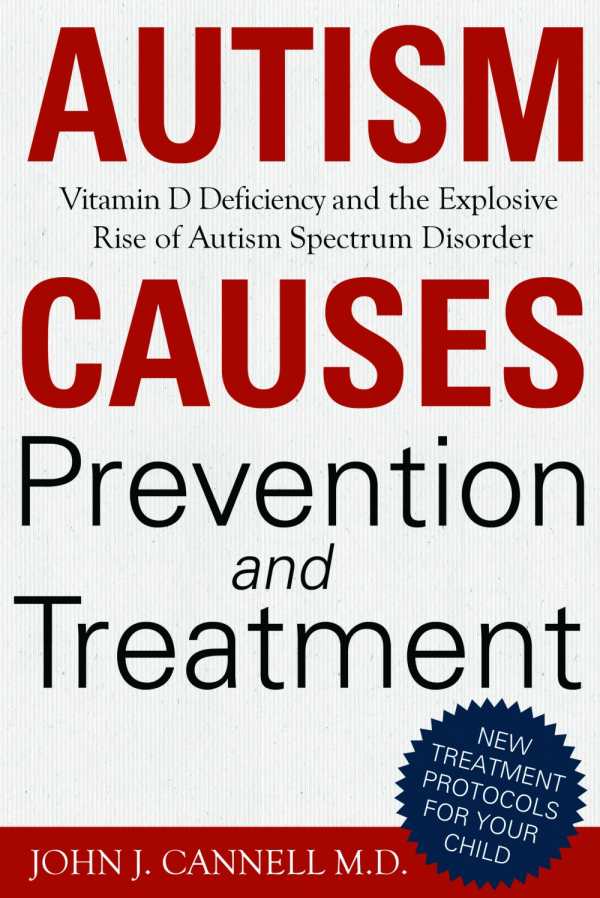Autism Causes, Prevention, and Treatment
Vitamin D Deficiency and the Explosive Rise of Autism Spectrum Disorder
Cannell shines the sun on a possible cause of autism: lack of vitamin D.
When John J. Cannell was just starting out as a physician in 1975, he saw something that was then rare: a patient who fit the symptoms of a range of neurodevelopment disorders known as autism. Cannell practiced medicine throughout the 1980s without ever seeing another case, and it did not pop up again until 1991, the beginning of what has since been labeled an “autism epidemic.” What happened between 1975 and 1991? While there are many theories and popular misconceptions about causes, no single answer has come to be universally accepted. In Autism Causes, Prevention, and Treatment, Cannell intriguingly, almost convincingly, has a single answer: vitamin D deficiency.
At first glance, this book may seem like Cannell is a hammer in search of a nail. He’s been obsessed with vitamin D since 1973, when he linked its deficiency to a resurgence of rickets; since then, he has published twenty-three peer-reviewed articles on vitamin D. But as Cannell’s arguments progress throughout the book, it all makes sense. What is the body’s main source of vitamin D? Sunlight. What are we getting less of these days, due to factors ranging from fear of skin cancer to staying indoors and playing video games? Sunlight. What has happened since sunlight fell out of medical favor? An autism epidemic.
Cannell’s epiphany came in 2004, when he noticed toddlers drinking juice instead of vitamin D-enriched formula or cow’s milk. After kids are weaned from formula, he writes, their main source of vitamin D goes away. Coincidentally, he writes, weaning happens at about the time toddlers get their first vaccinations, leading (and misleading) too many parents of autistic kids to blame vaccines.
Still, as all scientists point out, it’s too easy to mistake correlation with causation; in the end, the vitamin D deficiency argument is a strong one but not a smoking gun. Cannell admits that there is no incontrovertible proof. However, if vitamin D can only help and not hurt, he reasons, why take the chance on failing to supplement? Against that, there is no argument.
Reviewed by
Howard Lovy
Disclosure: This article is not an endorsement, but a review. The publisher of this book provided free copies of the book to have their book reviewed by a professional reviewer. No fee was paid by the publisher for this review. Foreword Reviews only recommends books that we love. Foreword Magazine, Inc. is disclosing this in accordance with the Federal Trade Commission’s 16 CFR, Part 255.

